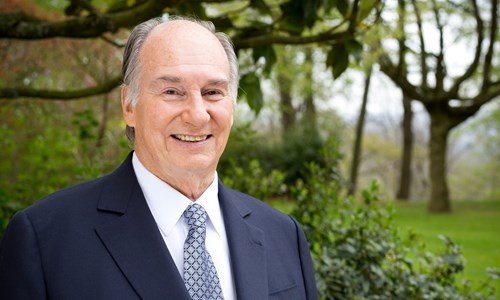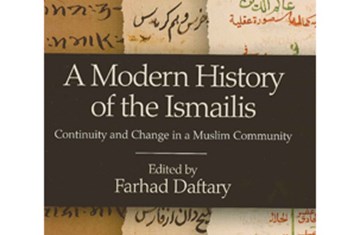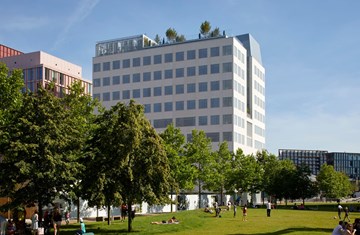The Ismaili Imamat
His Highness The Aga Khan
His Highness the Aga Khan is the 49th hereditary Imam (spiritual leader) of the Shia Ismaili Muslims. In the context of his hereditary responsibilities, His Highness has been deeply engaged with the development of countries around the world for more than 60 years through the work of the Aga Khan Development Network (AKDN).

The AKDN is a group of private, international, non-denominational agencies working to improve living conditions and opportunities for people in specific regions of the developing world. The Network’s organisations have individual mandates that range from the fields of health and education to architecture, rural development and the promotion of private-sector enterprise.
Together, they work towards a common goal – to build institutions and programmes that can respond to the challenges of social, economic and cultural change on an on-going basis. The AKDN works in close partnership with public and private institutions, including amongst others, governments, international organisations, companies, foundations, and universities.
AKDN’s social development agencies include the Aga Khan Health Services, Aga Khan Education Services, Aga Khan Academies, the Aga Khan Agency for Microfinance, the Aga Khan Foundation, Aga Khan Agency for Habitat as well as two universities, the Aga Khan University and the University of Central Asia. The Aga Khan Trust for Culture co-ordinates AKDN’s cultural activities, including the Aga Khan Award for Architecture, Historic Cities Programme, Aga Khan Music Initiative, Aga Khan Museum, and Aga Khan Program for Islamic Architecture (at Harvard and MIT).
The Aga Khan Fund for Economic Development (AKFED) is a development agency dedicated to promoting entrepreneurship and building economically sound enterprises in the developing world, often in countries that lack sufficient foreign direct investment. AKFED reinvests profits in further development initiatives.
The Ismaili Muslims are a global, multi-ethnic community whose members, comprising a wide diversity of cultures, languages and nationalities, live in Central Asia, the Middle East, South Asia, sub-Saharan Africa, Europe and North America.
The Aga Khan succeeded his grandfather, Sir Sultan Mahomed Shah Aga Khan, as Imam of the Shia Ismaili Muslims in 1957 at the age of 20. Since taking on his role in 1957, he has dedicated his efforts to improving the quality of life of the most vulnerable populations, while emphasising the view of Islam as a thinking, spiritual faith: one that teaches compassion and tolerance and that upholds human dignity.
In recognition of his exceptional efforts and contributions to human development and improving the social condition of societies globally, the Aga Khan has, over the last six decades, received numerous decorations, honorary degrees, and awards from institutions and nations across the world.



